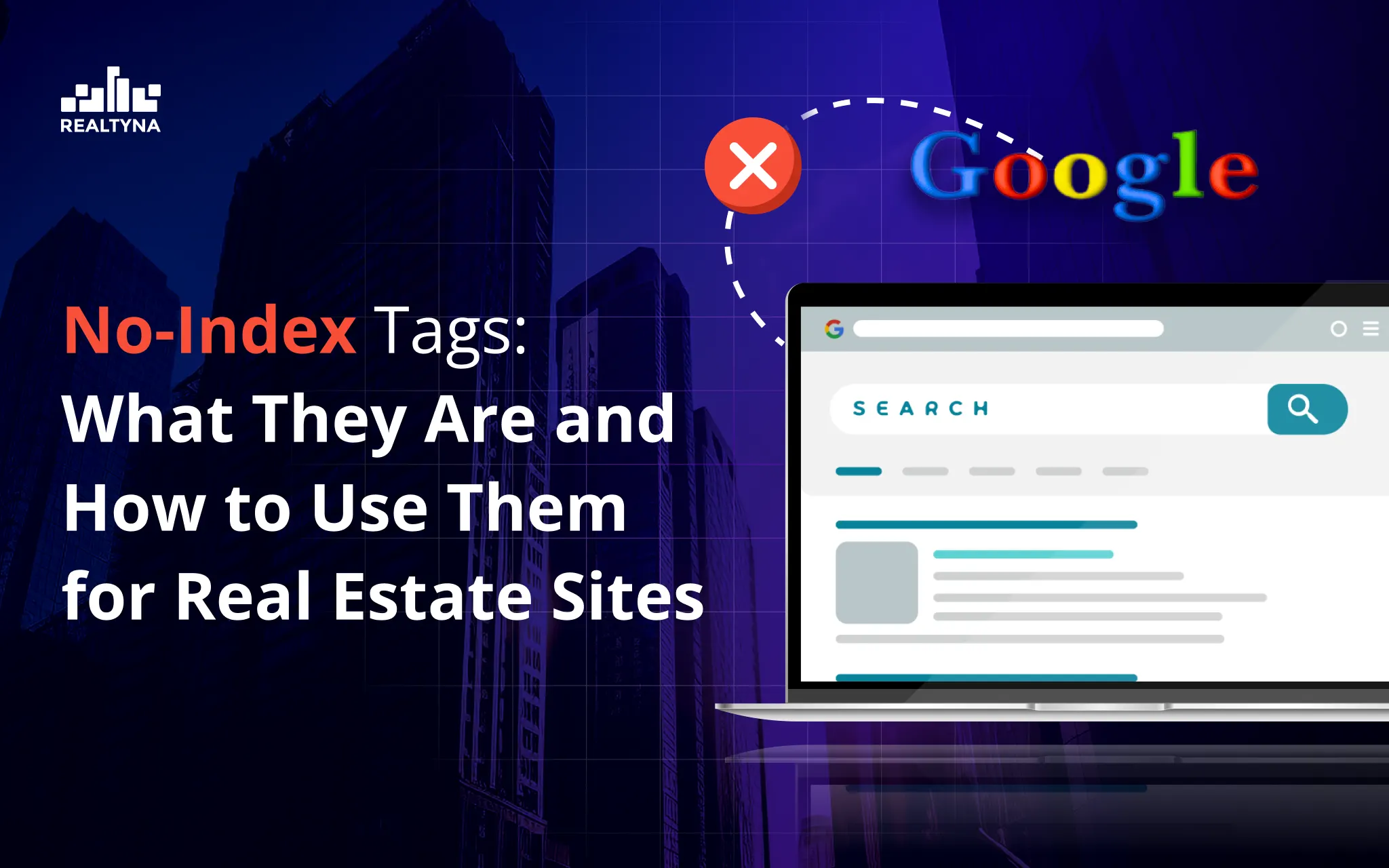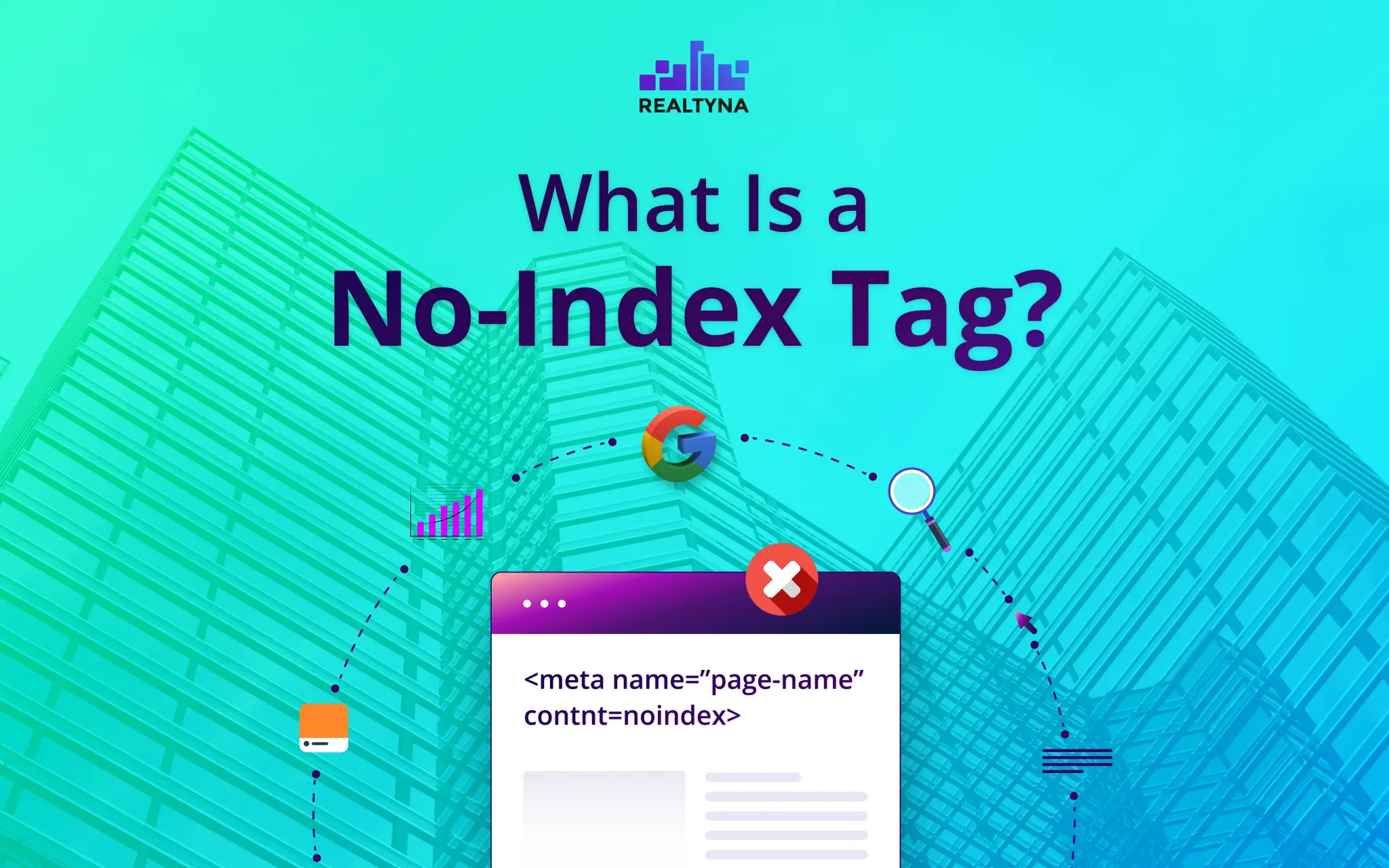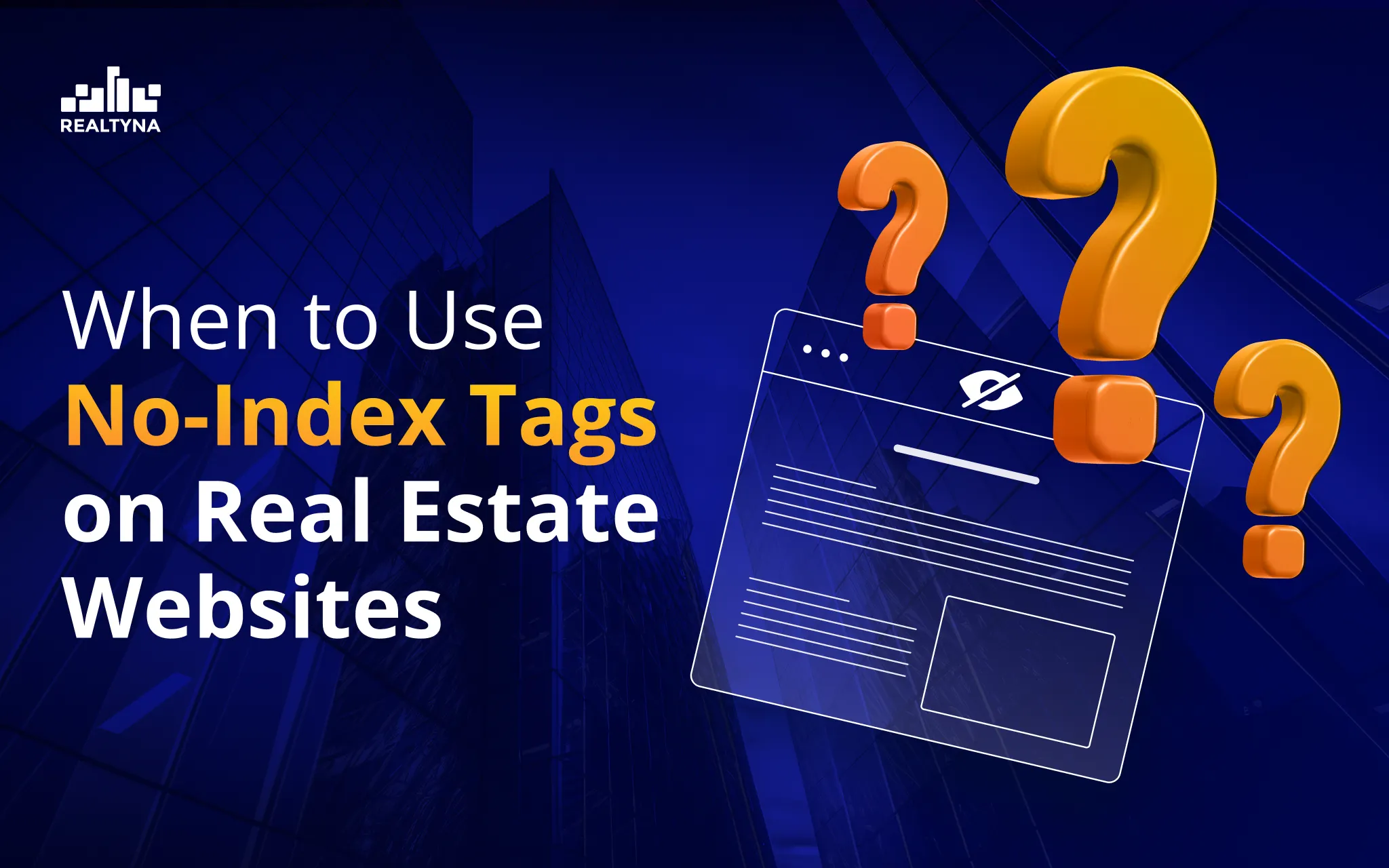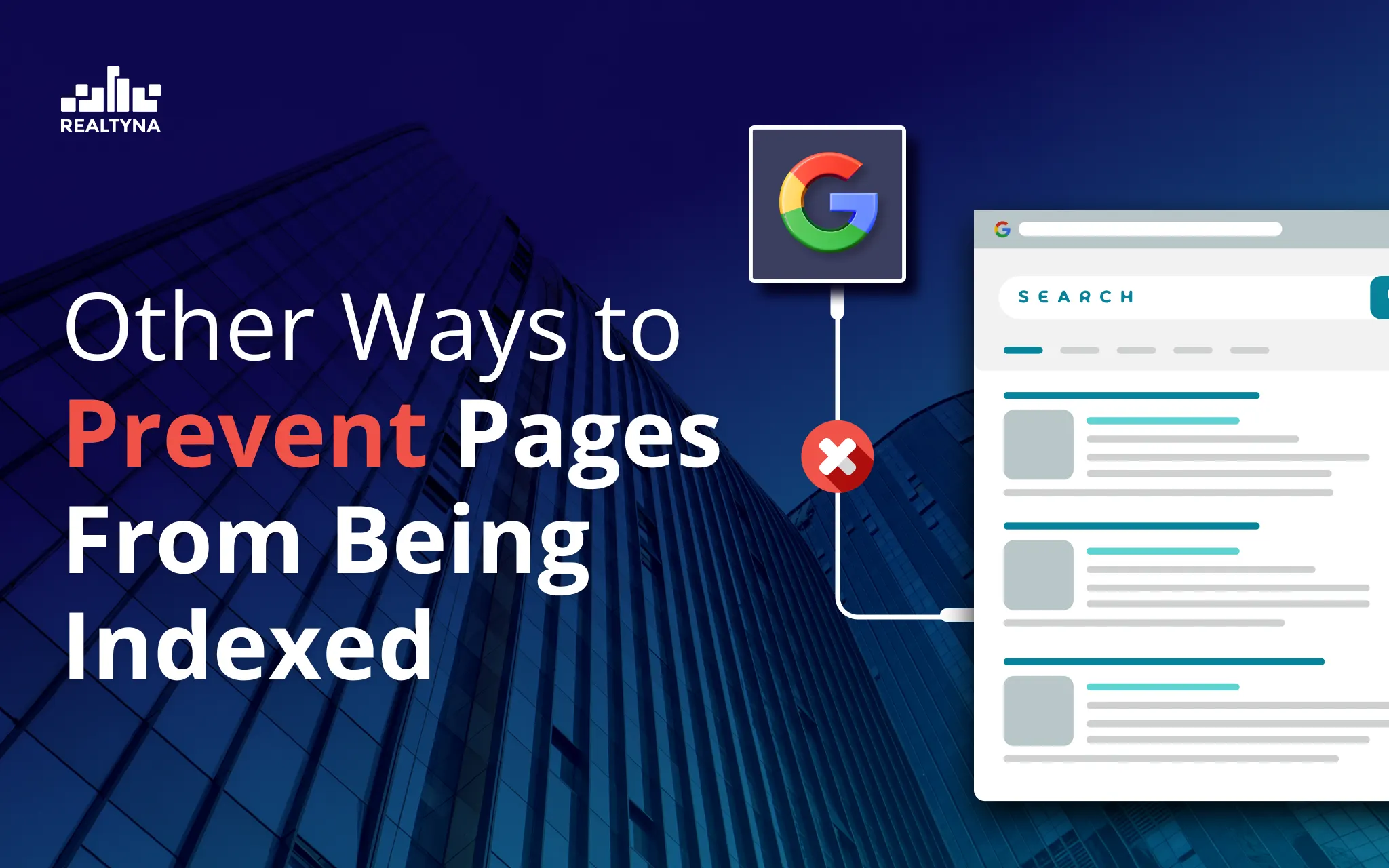
No-Index Tags: What They Are and How to Use Them for Real Estate Sites
You’ve probably heard about using tags to optimize your website, but did you know that sometimes the best optimization is to tell search engines not to index certain pages? That’s where no index tags come in.
For real estate sites, no indexing specific pages like logged-in account portals and duplicate content can boost your overall SEO.
In this article, we’ll explain exactly what no-index tags are, when and why you should use them, and how to implement no-index tags on your real estate website.
With just a few simple tweaks, you can hint to search engines that some pages should be left out of results, improving crawl efficiency and preventing duplicate content penalties.
Read on to learn the ins and outs of noindex tags for your real estate website.
What Is a No-Index Tag?

It Stops Search Engines
A no-index tag is a little snippet of code that tells search engines like Google not to include a specific page in their indexes. In other words, it’s an invisible “keep out” sign that prevents your page from showing up in search results.
Pretty handy if you have certain pages you’d rather keep on the down low, like private listings or confidential info. But use it wisely – overdo it, and your whole site could vanish into the internet abyss!
Why Use It for Real Estate?
Real estate is all about exclusive listings and high-value properties. Sometimes you might not want the whole world to know about that multi-million dollar mansion quite yet. That’s where the no-index tag comes in clutch.
It lets you control what information is publicly accessible while still having everything neatly organized on your website. Genius for managing staged listings, coming soon properties, or just keeping things under wraps until you’re ready to shout it from the rooftops.
How to Implement It
Using a no-index tag is refreshingly simple. Just drop this little meta tag between the <head></head> section of your page’s HTML:
<meta name=”robots” content=”noindex”>
Most website builders and content management systems also have easy toggle options to no-index individual pages or sections with a couple of clicks. Use SEO tools and plugins to make sure you have this option.
When to Use No-Index Tags on Real Estate Websites

For Duplicate Content
When you have multiple pages with similar or duplicate content, using a no-index tag can prevent search engines from indexing those extra pages. This is common on real estate sites that generate listing detail pages from an MLS feed – you may want the main listing page indexed but not the duplicates.
For Staging or Development Sites
If you have a staging or development version of your site that mimics the live production site, add a no-index tag. This prevents those temporary environments from being indexed and competing with your main site in search results.
Temporary or Transitional Pages
When redesigning your site, you may have transitional pages that are only live temporarily. A no-index tag ensures those pages don’t get indexed while they exist. Use it for any pages that are not meant for public consumption long-term.
For Low-Value Pages
Some pages on your site may be of very low value to users and search engines – think print-friendly versions of pages or narrow filtered search results. Add a no-index tag to those types of thin or low-value pages.
Login or Account Areas
Any private user account area should have a no-index tag applied. These pages are not intended for public search access, so blocking them is a privacy best practice.
Crawl Budget Management
Large real estate sites can have thousands of pages. A strategic use of no-index tags on lower-priority areas can help focus your crawl budget on your most important pages.
Other Ways to Prevent Pages From Being Indexed

Robots.txt File
Another way to prevent pages from being indexed is by using a robots.txt file. This is a text file that lives in the root directory of your website that gives instructions to search engine crawlers on which pages or directories they should avoid indexing.
Simply add the directory paths or individual URLs you want to block from being indexed in this file. It’s an easy way to control what gets crawled on your site.
Learn more at what is robots.txt
Password Protection
If you have private pages or sections that need to be kept out of search results, password-protecting them is an option. Search engine bots can’t access password-protected areas so content stays private and unindexed.
This method works well for client portals, member areas, or any other sensitive info you don’t want publicly accessible.
Canonical Tags
While not a direct way to block indexing, using canonical tags can help indicate to search engines which is the “master” version of a page when you have duplicate or similar content.
This can prevent the wrong pages from being indexed and ranked while allowing the canonical URL to be properly indexed instead. It’s a good way to control duplicate content issues.
And that was all!
Now you know what a noindex tag is and how you can use noindex tags on your real estate website to improve your SEO and avoid getting penalized.
Just don’t forget those no index tags on pages you want to hide! Not rank!


Sorry, the comment form is closed at this time.